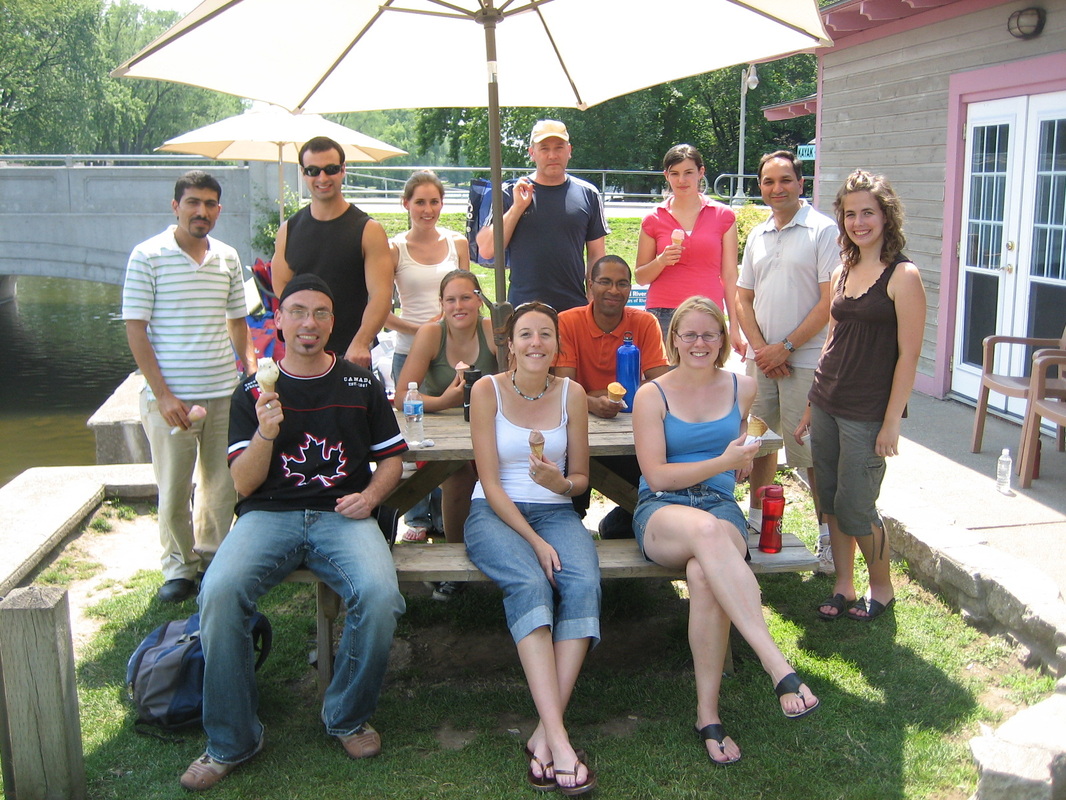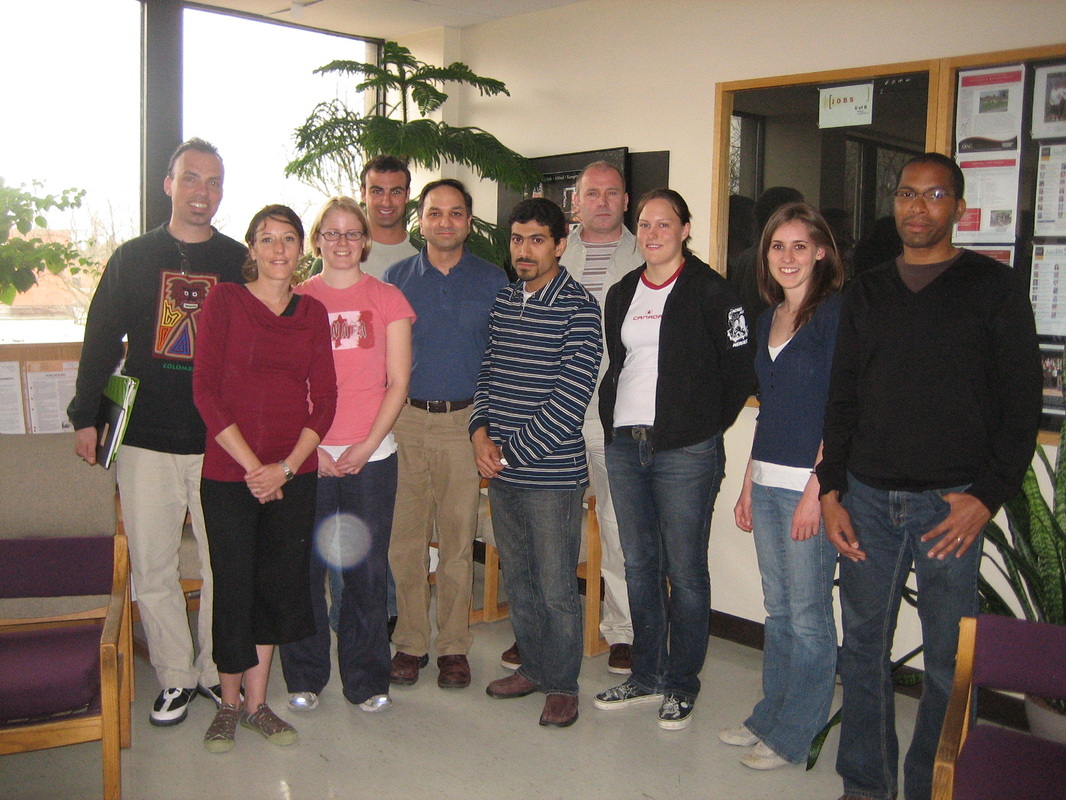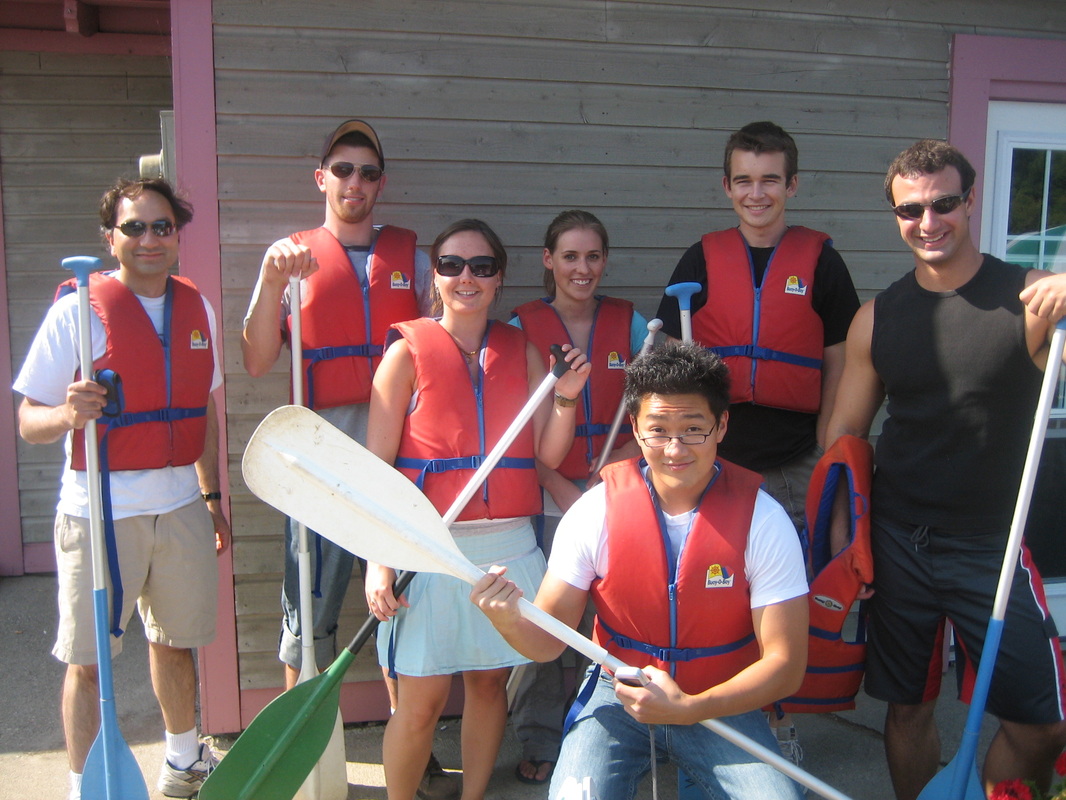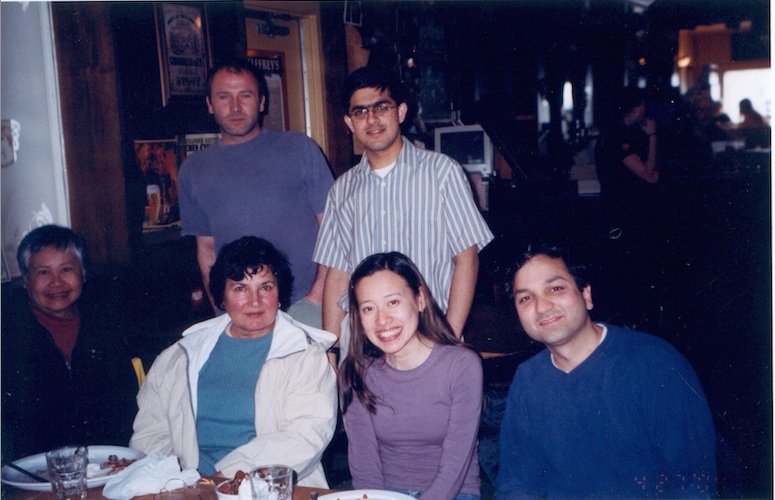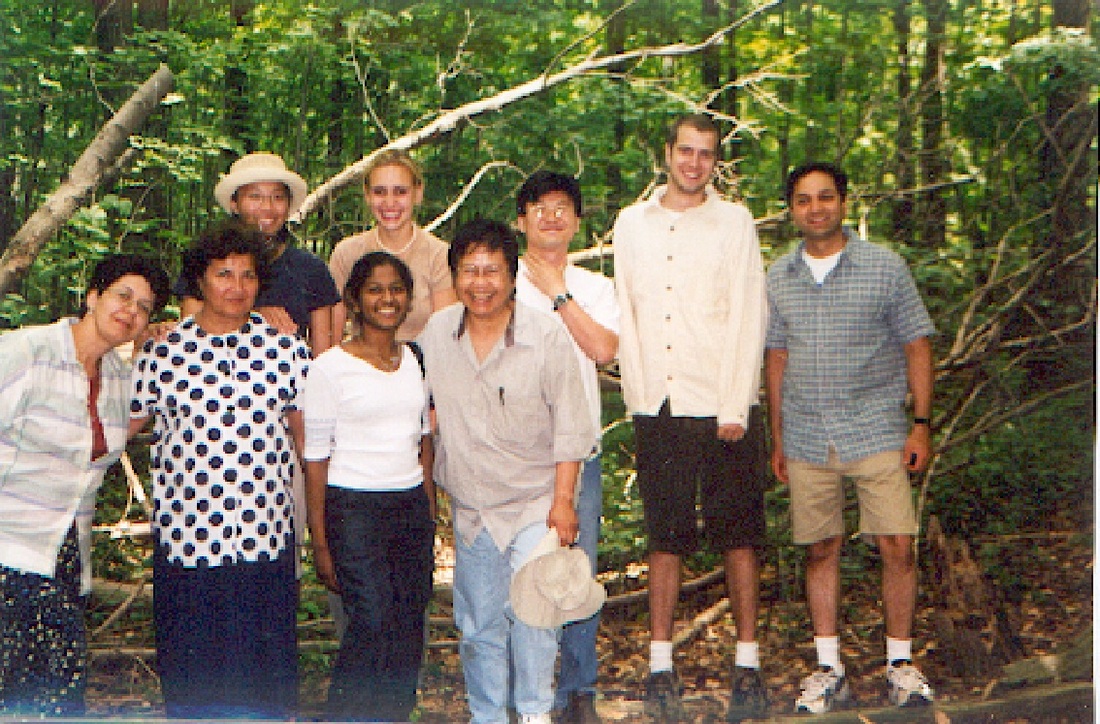Current Lab Personnel (Profiles Below)
Current Personnel (as of May 1, 2024)
Manish N. Raizada, Professor
Erik Glemser, OMAFRA Field Technician (joint with Prof. Hugh Earl)
Dr. Eman Khalaf, Research Associate
Dr. Roshan Pudasaini, Post-Doctoral Fellow
Angelica Miraples, PhD student
Fiona MacIntyre, undergraduate
Affiliated: Phelystus Kubwa, Publishing Assistant for Farmpedia & special projects, and responsible for social media.
Manish N. Raizada, Professor
Erik Glemser, OMAFRA Field Technician (joint with Prof. Hugh Earl)
Dr. Eman Khalaf, Research Associate
Dr. Roshan Pudasaini, Post-Doctoral Fellow
Angelica Miraples, PhD student
Fiona MacIntyre, undergraduate
Affiliated: Phelystus Kubwa, Publishing Assistant for Farmpedia & special projects, and responsible for social media.
Profiles of Individual Lab Members

Prof. Manish N. Raizada
Group Leader
Email: [email protected]
Biography: I was born in the Indian Himalayas, but spent my very early childhood in Nigeria (West Africa) and then grew up in a suburb of Toronto, Canada. When I was a young teenager at North Park Secondary School (Brampton, Canada), a terrible famine hit in Ethiopia (~1984); the televised images of that horrible event were pivotal to my life and I was encouraged by my mentors to get involved. I later learned that crops were not only a source of food, but was also the major source of income in poor nations. In countries such as Ethiopia, 80-95% of the population belong to farmer households. Therefore, to help poor people, agriculture is critical. I combined my love of genetics and agriculture to become a crop geneticist. After being educated in Canada, California and Mexico, I returned to near my childhood home in Canada to become a faculty member at the University of Guelph, Canada’s oldest and largest agricultural university. At Guelph, I am so fortunate to work with a fantastic group of dedicated students and researchers, who are not only wonderful scientists, but also care about the world around them. The focus of my Lab is to discover and use probiotics to reduce/replace fungicide and fertilizer inputs, because the world’s 800 million poor farmers cannot afford these. Furthermore, synthetic fertilizer production relies on oil and natural gas which contribute to climate change. I also happen to love bacteria and how clever they are! I have also brought together a team to test and sell a menu of simple $1 agronomic products packaged into Sustainable Agriculture Kits (SAKs) to help subsistence farmers -- at a cost that the world’s bottom billion can afford to purchase on their own. At Guelph, I also enjoy teaching and mentoring, and I have been fortunate to have taught students who probably taught me more than I could ever teach them. In my personal life, I am married to a lawyer who defends immigrants and refugees, and together we have two young daughters who bring joy to our lives.
Group Leader
Email: [email protected]
Biography: I was born in the Indian Himalayas, but spent my very early childhood in Nigeria (West Africa) and then grew up in a suburb of Toronto, Canada. When I was a young teenager at North Park Secondary School (Brampton, Canada), a terrible famine hit in Ethiopia (~1984); the televised images of that horrible event were pivotal to my life and I was encouraged by my mentors to get involved. I later learned that crops were not only a source of food, but was also the major source of income in poor nations. In countries such as Ethiopia, 80-95% of the population belong to farmer households. Therefore, to help poor people, agriculture is critical. I combined my love of genetics and agriculture to become a crop geneticist. After being educated in Canada, California and Mexico, I returned to near my childhood home in Canada to become a faculty member at the University of Guelph, Canada’s oldest and largest agricultural university. At Guelph, I am so fortunate to work with a fantastic group of dedicated students and researchers, who are not only wonderful scientists, but also care about the world around them. The focus of my Lab is to discover and use probiotics to reduce/replace fungicide and fertilizer inputs, because the world’s 800 million poor farmers cannot afford these. Furthermore, synthetic fertilizer production relies on oil and natural gas which contribute to climate change. I also happen to love bacteria and how clever they are! I have also brought together a team to test and sell a menu of simple $1 agronomic products packaged into Sustainable Agriculture Kits (SAKs) to help subsistence farmers -- at a cost that the world’s bottom billion can afford to purchase on their own. At Guelph, I also enjoy teaching and mentoring, and I have been fortunate to have taught students who probably taught me more than I could ever teach them. In my personal life, I am married to a lawyer who defends immigrants and refugees, and together we have two young daughters who bring joy to our lives.
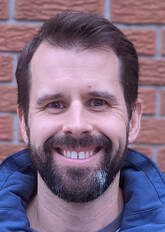
Erik Glemser
OMAFRA Field Technician (joint with Prof. Hugh Earl)
Email: [email protected]
Biography: I became a Guelph gryphon when I enrolled as an undergraduate in 2003. I was attracted to the University of Guelph because of its excellent reputation as top comprehensive university, with strong agricultural roots. As fortune would have it, I had the opportunity to perform an undergraduate research project, evaluating the toxicity of mustard extract on agricultural fly pests (Delia sp.), which introduced me to the rewards (and challenges) of scientific experimentation. With this new passion, I started a MSc degree at the University of Guelph in 2008, studying the invasive multicoloured Asian lady beetle (Harmonia axyridis). This beetle is typically a beneficial biocontrol organism, but its presence in vineyards during grape harvest is problematic, causing negative effects on wine quality. To understand why beetles aggregate in vineyards during the autumn, I explored the relationship between grape odours and beetle olfactories. After completing my graduate degree in 2010, I entered the “working world” full-time. I have had many wonderful experiences working in agri-food sector, including positions in government, industry, academia, and non-profit organizations. In 2019, I joined the Riazada research group as a full-time technician, where I support field and laboratory activities. Outside of work, my family and friends keep me active and busy.
OMAFRA Field Technician (joint with Prof. Hugh Earl)
Email: [email protected]
Biography: I became a Guelph gryphon when I enrolled as an undergraduate in 2003. I was attracted to the University of Guelph because of its excellent reputation as top comprehensive university, with strong agricultural roots. As fortune would have it, I had the opportunity to perform an undergraduate research project, evaluating the toxicity of mustard extract on agricultural fly pests (Delia sp.), which introduced me to the rewards (and challenges) of scientific experimentation. With this new passion, I started a MSc degree at the University of Guelph in 2008, studying the invasive multicoloured Asian lady beetle (Harmonia axyridis). This beetle is typically a beneficial biocontrol organism, but its presence in vineyards during grape harvest is problematic, causing negative effects on wine quality. To understand why beetles aggregate in vineyards during the autumn, I explored the relationship between grape odours and beetle olfactories. After completing my graduate degree in 2010, I entered the “working world” full-time. I have had many wonderful experiences working in agri-food sector, including positions in government, industry, academia, and non-profit organizations. In 2019, I joined the Riazada research group as a full-time technician, where I support field and laboratory activities. Outside of work, my family and friends keep me active and busy.
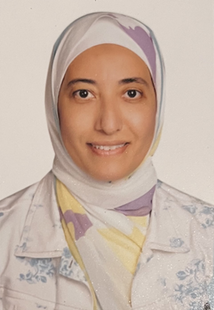
Eman Khalaf
Research Associate
Email:[email protected]
Biography: I was born and raised in Egypt where I completed my undergrad and postgrad studies (Master's and Ph.D. degrees) in pharmaceutical sciences. However, I like to describe myself as a microbiologist with multidisciplinary interests and a pharmacy background. My research experience comprises over 18 years including 10 years working in clinical and pharmaceutical microbiology, where my research projects were mainly focused on studying bacterial resistance through investigating the potential risks of overuse/misuse of antibiotics.
Then, the turning point happened in 2014 after joining Raizada lab as a visiting scholar postdoctoral fellow where I switched my research interest to work on the culturomics approach where I explored the beneficial microbes living inside cucurbit seeds along with studying their potential functions as biofertilizers and biocontrol agents. Interestingly, my passion for computer science have come true when I used my past experience in PL/SQL used in Oracle database to work on biological data analysis by learning new bioinformatics pipelines. I used these new skills in analyzing the transmitting silk microbiome of the maize crop, and currently, I am contributing to different lab projects focused on exploring the microbiomes of plant organs and their responses to different stresses. Eventually, I would love to translate my research and academic skills into an industry context and contribute to solving real-world problems.
Research Associate
Email:[email protected]
Biography: I was born and raised in Egypt where I completed my undergrad and postgrad studies (Master's and Ph.D. degrees) in pharmaceutical sciences. However, I like to describe myself as a microbiologist with multidisciplinary interests and a pharmacy background. My research experience comprises over 18 years including 10 years working in clinical and pharmaceutical microbiology, where my research projects were mainly focused on studying bacterial resistance through investigating the potential risks of overuse/misuse of antibiotics.
Then, the turning point happened in 2014 after joining Raizada lab as a visiting scholar postdoctoral fellow where I switched my research interest to work on the culturomics approach where I explored the beneficial microbes living inside cucurbit seeds along with studying their potential functions as biofertilizers and biocontrol agents. Interestingly, my passion for computer science have come true when I used my past experience in PL/SQL used in Oracle database to work on biological data analysis by learning new bioinformatics pipelines. I used these new skills in analyzing the transmitting silk microbiome of the maize crop, and currently, I am contributing to different lab projects focused on exploring the microbiomes of plant organs and their responses to different stresses. Eventually, I would love to translate my research and academic skills into an industry context and contribute to solving real-world problems.
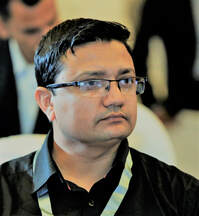
Roshan Pudasaini
Post-Doctoral Fellow
Email: [email protected]
Biography: I was born and raised in a farming family from Nepal. I completed my master's degree in Agriculture with a specialization in soil science from Tribhuvan University, Nepal. I have worked for a local agricultural NGO, LI-BIRD (Local Initiatives for Biodiversity, Research and Development), for ten years. At LI-BIRD, I coordinated a number of projects intended to improve smallholder farmer food security, livelihoods, and resilience. A few examples are Home Gardens for Family Nutrition (supported by the Swiss Agency for Development and Cooperation SDC), Sustainable Agriculture Kits (SAK) project (Supported by the International Development Research Centre, IDRC) and Climate Smart Village for Community Resilience (supported by the CGIAR program on Climate Change Agriculture and Food Security, CCAFS). Thus far, my work in agricultural research has impacted the lives of an estimated 520,000 subsistence rural Nepalese (114,000 families), either directly or indirectly, and created models that can be implemented to help millions globally in the future. I recently completed my PhD in the Raizada Lab, where I focused on the West African crop fonio as well as a novel method to distribute and improve rhizobia bacteria for legumes. As a post-doctoral fellow, I am continuing and expanding my research to improve rhizobia bacterial inoculants, focusing on common bean.
Post-Doctoral Fellow
Email: [email protected]
Biography: I was born and raised in a farming family from Nepal. I completed my master's degree in Agriculture with a specialization in soil science from Tribhuvan University, Nepal. I have worked for a local agricultural NGO, LI-BIRD (Local Initiatives for Biodiversity, Research and Development), for ten years. At LI-BIRD, I coordinated a number of projects intended to improve smallholder farmer food security, livelihoods, and resilience. A few examples are Home Gardens for Family Nutrition (supported by the Swiss Agency for Development and Cooperation SDC), Sustainable Agriculture Kits (SAK) project (Supported by the International Development Research Centre, IDRC) and Climate Smart Village for Community Resilience (supported by the CGIAR program on Climate Change Agriculture and Food Security, CCAFS). Thus far, my work in agricultural research has impacted the lives of an estimated 520,000 subsistence rural Nepalese (114,000 families), either directly or indirectly, and created models that can be implemented to help millions globally in the future. I recently completed my PhD in the Raizada Lab, where I focused on the West African crop fonio as well as a novel method to distribute and improve rhizobia bacteria for legumes. As a post-doctoral fellow, I am continuing and expanding my research to improve rhizobia bacterial inoculants, focusing on common bean.

Angelica Miraples
PhD student
Email: [email protected]
Biography: : I was born in Toronto, Canada and attended what was then called Jean Vanier Catholic Secondary School in Scarborough. I realized I enjoyed academic level biology in my later years and made the decision to attend the University of Toronto, St. George Campus, for my undergrad with the underlying and unspoken expectation to try for medical school. That dream was crushed early on, but as my time passed, I immersed myself in research science, landing volunteer work and then an independent research project in Dr. Keiko Yoshioka’s in the department of Cell and Systems Biology. I loved it so much, that I continued there and completed a master’s degree investigating the function and regulation of cyclic nucleotide-gated ion channels (CNGCs) in the model organism Arabidopsis thaliana. Although my dissertation uncovered novel findings on CNGCs, I hoped that the next step of my journey would involve more translational research to issues we are encountering now on a global scale! Now, under the supervision of Dr. Manish Raizada, I am pursuing a PhD in plant agriculture where we are currently looking to understand the relationship between important crops such as corn and wheat and the beneficial microbes that associate with them.
PhD student
Email: [email protected]
Biography: : I was born in Toronto, Canada and attended what was then called Jean Vanier Catholic Secondary School in Scarborough. I realized I enjoyed academic level biology in my later years and made the decision to attend the University of Toronto, St. George Campus, for my undergrad with the underlying and unspoken expectation to try for medical school. That dream was crushed early on, but as my time passed, I immersed myself in research science, landing volunteer work and then an independent research project in Dr. Keiko Yoshioka’s in the department of Cell and Systems Biology. I loved it so much, that I continued there and completed a master’s degree investigating the function and regulation of cyclic nucleotide-gated ion channels (CNGCs) in the model organism Arabidopsis thaliana. Although my dissertation uncovered novel findings on CNGCs, I hoped that the next step of my journey would involve more translational research to issues we are encountering now on a global scale! Now, under the supervision of Dr. Manish Raizada, I am pursuing a PhD in plant agriculture where we are currently looking to understand the relationship between important crops such as corn and wheat and the beneficial microbes that associate with them.

Fiona MacIntyre
BSc student
Email: [email protected]
Biography: I was born in Toronto, Ontario, and spent my childhood in Collingwood, Ontario. Here, I grew up spending my free time outdoors skiing, cycling, and camping with my family. My interest in biology led me to the University of Guelph, where I am currently pursuing an undergraduate degree in microbiology, with a minor in molecular biology and genetics. Alongside academics, I grew my passion for the outdoors and building sustainable communities in my position as a Project Serve team leader, and in my leadership role on the university’s Dragon Boat team. Recently, I had the opportunity to complete a research project investigating soil microbes as a potential resource for novel antibiotics. This experience piqued my interest in microbial applications in agriculture, leading to my interest in research at the Raizada lab. I am eager to further explore the role of beneficial microbes in agriculture.
BSc student
Email: [email protected]
Biography: I was born in Toronto, Ontario, and spent my childhood in Collingwood, Ontario. Here, I grew up spending my free time outdoors skiing, cycling, and camping with my family. My interest in biology led me to the University of Guelph, where I am currently pursuing an undergraduate degree in microbiology, with a minor in molecular biology and genetics. Alongside academics, I grew my passion for the outdoors and building sustainable communities in my position as a Project Serve team leader, and in my leadership role on the university’s Dragon Boat team. Recently, I had the opportunity to complete a research project investigating soil microbes as a potential resource for novel antibiotics. This experience piqued my interest in microbial applications in agriculture, leading to my interest in research at the Raizada lab. I am eager to further explore the role of beneficial microbes in agriculture.
Older Lab Group Pictures
Raizada Lab - July 2015 - (from L-R) - Dr. Malinda Thilakarathna, Kamal Khadka, Walaa Mousa, Dr. Tejendra Chapagain, Jaclyn Clark, Manish Raizada, Dylan Harding, Travis Goron, Charles Shearer, Dr. Eman Khalaf, Hanan Shehata, Myla Manser, Finlay Small (missing: Jeffrey Rinne, Paul Cote, Eamonn McGuinty, Lisa Smith, Gryphon Therault-Loubier, Sophia Watts, Austin Bruch, Sara Wyngaarden)
Raizada Lab May 2013 - (L to R) - Travis Goron, Hanan Shehata, Walaa Mousa, Manish Raizada, Robert Kerr and Charles Shearer
Raizada Lab July 2008
Raizada Lab May 2008 - (L to R) - David Johnston Monje, Amelie Gaudin, Adrienne Davidson, Michael Tessaro, Manish Raizada, Sameh Soliman, Steve Chatfield, Bridget Holmes, Blair Nameth, Christophe Liseron-Monfils
Raizada Lab - August 2007
Raizada Lab & Families - May 2007
Raizada Lab - September 2004 - (Front, L-R) - Rosalinda Oro, Ekaterina Simion, May Quach, Manish Raizada - (Back, L-R) - Steve Chatfield, Rohit Makhijani
Raizada Lab and Kasha Lab - June 2002


